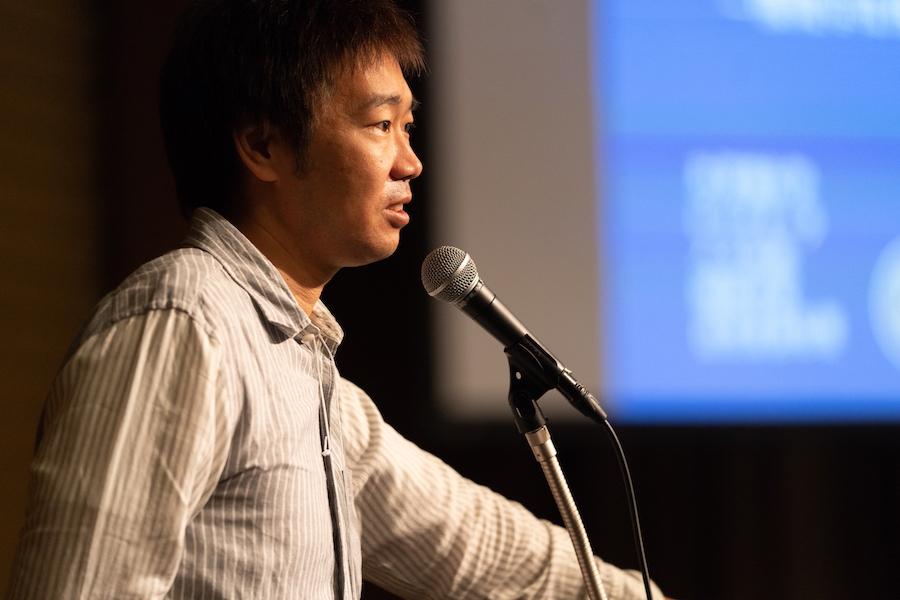International Workshop: AI-Biz2019
November 10-12, 2019Raiosha Building, Hiyoshi Campus, Keio University
4-1-1 Hiyoshi, Kohoku-ku, Yokohama, Kanagawa 223-8521, Japan
http://www.keio.ac.jp/en/maps/hiyoshi.html
Aims and Scope
The objective of this workshop is to foster the concepts and techniques of“Business Intelligence (BI).” in Artificial Intelligence. BI should include such cutting-edge techniques as data science, agent-based modelling, complex adaptive systems, and IoT. The application areas include but not limited to business management, finance engineering, service sciences, manufacturing engineering, and so on.The basic idea of BI would enhance the capabilities of conventional techniques in business domain, however, so far, we have not discussed BI concepts deeply in artificial intelligence literature. We would like to focus on BI topics to the issues of firms and organizations for getting more benefits on interactions with human- and computer- mixed systems.
The main purpose of this workshop is to provide a forum to discuss important research questions and practical challenges in Business Intelligence, Business Informatics, Data Analysis and Agent-based Modelling to exchange latest results, to join efforts in solving the common challenges. It is also to establish an effective communication between researchers and developers involved in the both areas. The workshop will provide opportunities for the participants to exchange new ideas and experiences to establish research or business network and to find global partners for future collaboration.
Program
November 12, 2019Hiyoshi Campus of Keio University, Yokohama, Kanagawa.
https://www.keio.ac.jp/en/maps/
9:20 - 9:30
Opening session
Prof. Takao Terano (Chiba University of Commerce, National Institute of Advanced Industrial Science and Technology (AIST))
9:30 - 10:00 (L)
Study on Ranking Method of Technical Documents: The Case of Patent Infringement Avoidance Survey
Kenji Akiyama and Takafumi Saito
Text Analysis on the Stock Market in the Automotive Industry through Fake News Generated by GPT-2
Yoshihiro Nishi, Aiko Suge and Hiroshi Takahashi
Session 2. Chair: Masakazu Takahashi (Yamaguchi University)
11:00 - 11:30 (L)
Gaming Simulation on Merger and Acquisition
Miku Mochii and Kurahashi Setsuya
Research Related to Each Startup Support and Their Effective Combinations
Hirotaka Yanada and Setsuya Kurahashi
Invited Talk 1
13:10 - 14:10
Financial Data Analyses – Modeling of a Time-Series or a Multivariate Approach
Prof. Goutam Chakraborty
Iwate Prefectural University
Introduction and abstract of the invited talk 1
14:10 - 15:10
All you need is not money. - How to encourage posting contents on CGM? -
Prof. Fujio Toriumi
The University of Tokyo
Introduction and abstract of the invited talk 2
Session 3. Chair: Hiroshi Takahashi (Keio University)
15:40 - 16:10 (L)
Deep Learning for Multi-factor Models in Global Stock Markets
Masaya Abe and Kei Nakagawa
Novel Validation Method for the R&D Project Status Visualization in Open-Innovation model
Hideki Hayashida, Masakazu Takahashi and Hiroki Funashima
Closing
AI-Biz2019 Invited Talk 1

Prof. Goutam Chakraborty
Financial Data Analyses – Modeling of a Time-Series or a Multivariate Approach
The aim of analysis of financial data is to maximize profit on an investment. Depending on the investor, whether it is a bank, a hedge fund, or an individual person, resources available for analysis are different. Moreover, the amount and period of investment are different. In fact, the optimization criterion could be very different too. For these reason we have umpteen number of models for portfolio management. While investing in a company, several analysis methods are available to judge the health of the business before taking decision. They are namely, Vertical analysis, Horizontal Analysis, Leverage, Growth, Profitability, Liquidity etc., which investigate the health of the business, and compare with peers. Depending on the motivation of the investment, a subset of the analysis is done to guide the decision. There is another approach where the share value (or Forex rate) data, collected over a long interval of time, is used to model the dynamics for predicting the future - which is time-series modeling. Starting from the conventional algorithms, like AR, ARMA, ARIMA, and extensions like GRACH for volatility estimation, in recent years many new machine learning tools are used for financial time-series modeling. In this talk, we will discuss about deterministic Chaos, often observed in financial time-series, and how to use its property to model the data. In addition, we will discuss how Recurrent Neural Network can be used for modeling and prediction of financial data.
Prof. Goutam Chakraborty
Prof. Goutam Chakraborty received his Ph.D. in 1993 from Tohoku University, Japan. Before joining Tohoku University, he worked in Telecommunication Industry in India. Presently he is Professor and head of the Intelligent Informatics laboratory, Department of the Software and Information Science, Iwate Prefectural University, Japan. His research interests are Machine Learning, Soft Computing algorithms including deep-neural networks and their applications to solve pattern recognition, prediction, scheduling and optimization problems, including applications in wired and wireless Networks. He is interested in the analysis of various time-series signals like ECG, EEG, and other bio-signals, for health/medical applications. He also works in the area of data-mining and text-mining.
AI-Biz2019 Invited Talk 2

Prof. Fujio Toriumi
All you need is not money. - How to encourage posting contents on CGM? -
After web 2.0 era, thousands of systems which provides a platform to bridge user to user are developed which called Consumer Generated Media (CGM) such as social news sites, review sites, information sharing sites and video sharing sites. Various incentive systems are implemented in CGM to encourage those content-providers. Both functions of comments and the "like" buttons are well-known systems to reward the providers. In several CGM, on the other hand, monetary incentive systems are often introduced to encourage providers. Here comes a research question: Are the monetary incentives encourage to post articles on CGM? In this talk, I'll explain our agent-based model to confirm the effect of incentive systems which implemented to CGM including monetary rewards.
Prof. Fujio TORIUMI
Prof. Fujio TORIUMI received his Ph.D in 2004 from Tokyo Institute of Technology in Tokyo.
He started an academic career as Assistant Professor of Nagoya University in 2004. He is now Associate Professor in the University of Tokyo. His research interests are Agent based Simulation, Social Media, Network Analysis, and Artificial Market.
Important Dates
Submission Deadline:Notification:
Camera-ready due:
Deadline for Early registration : October 31, 2019
Workshop: November 12, 2019
Submissions
Papers must be prepared according to the Springer LNCS/LNAI format. The page limit is 14 pages, including figures and bibliography. This conference uses a double-blind review.Selected papers will be published as post-proceedings via Springer Verlag LNAI after the second round of a double-blind review after the workshop.
Please ensure that your paper fully complies with the LNAI format.
Guidelines for the LNAI format
http://www.springer.com/computer/lncs?SGWID=0-164-6-793341-0
LNCS/LNAI style files
ftp://ftp.springer.de/pub/tex/latex/llncs/latex2e/llncs2e.zip
Submission and review of papers for AI-Biz2019 is managed via EasyChair:
www.easychair.org/conferences/?conf=aibiz2019